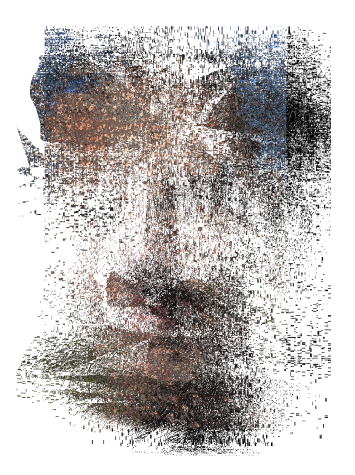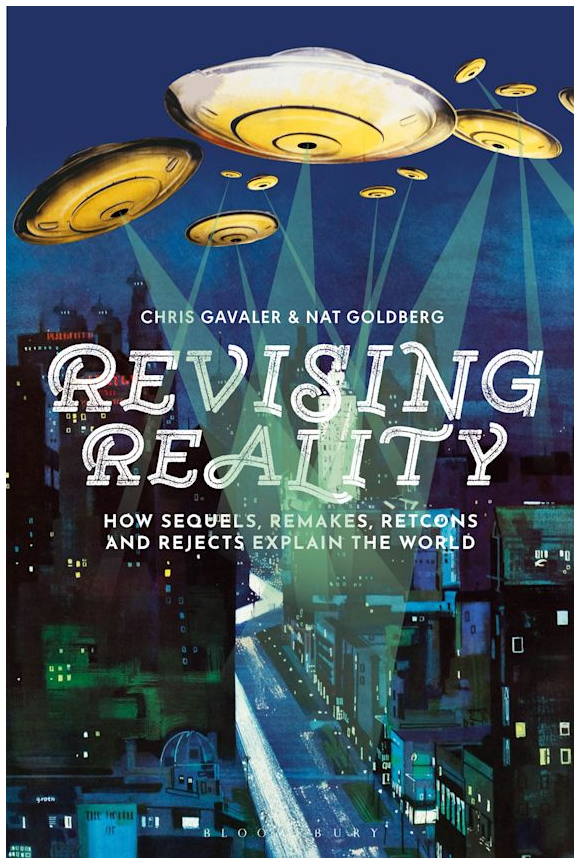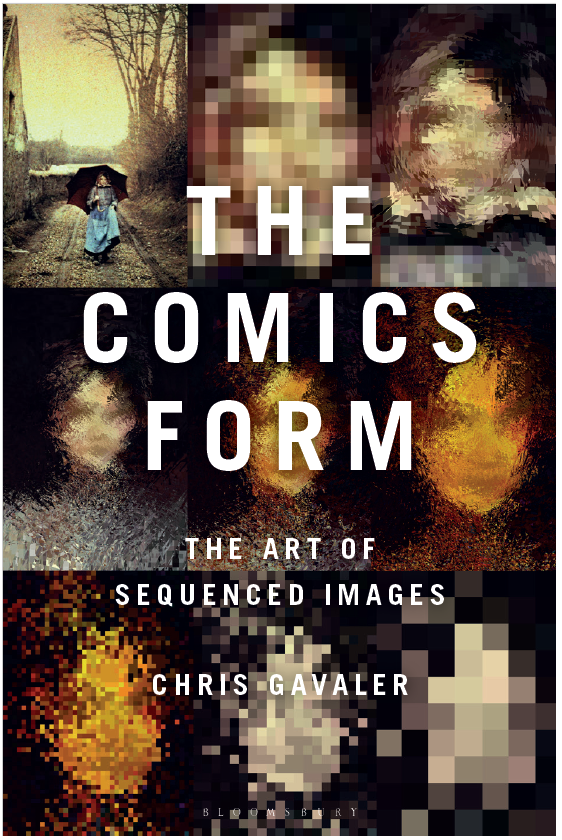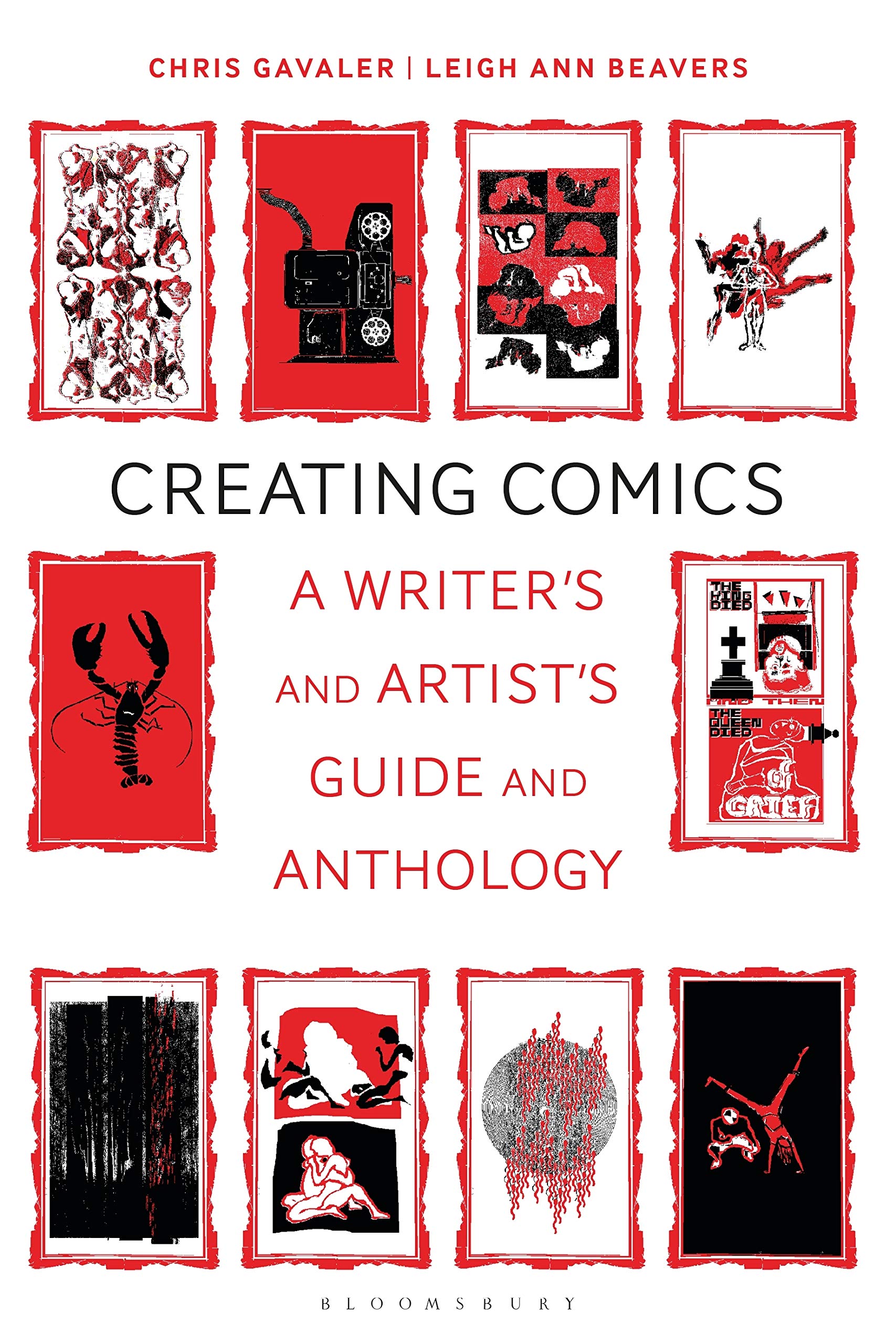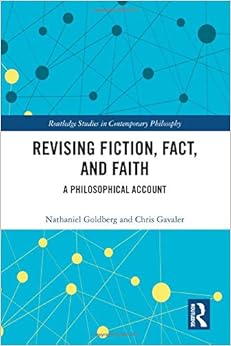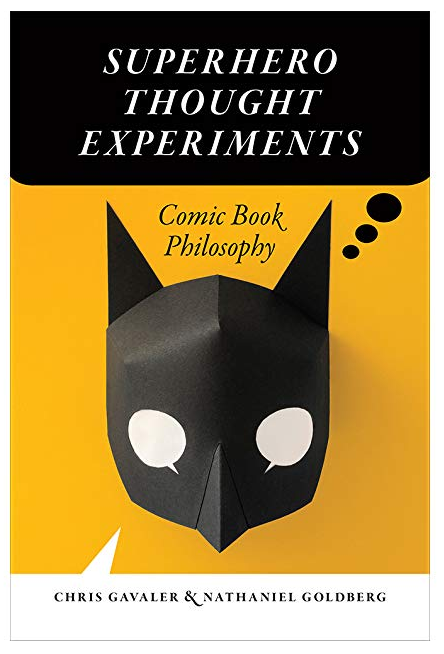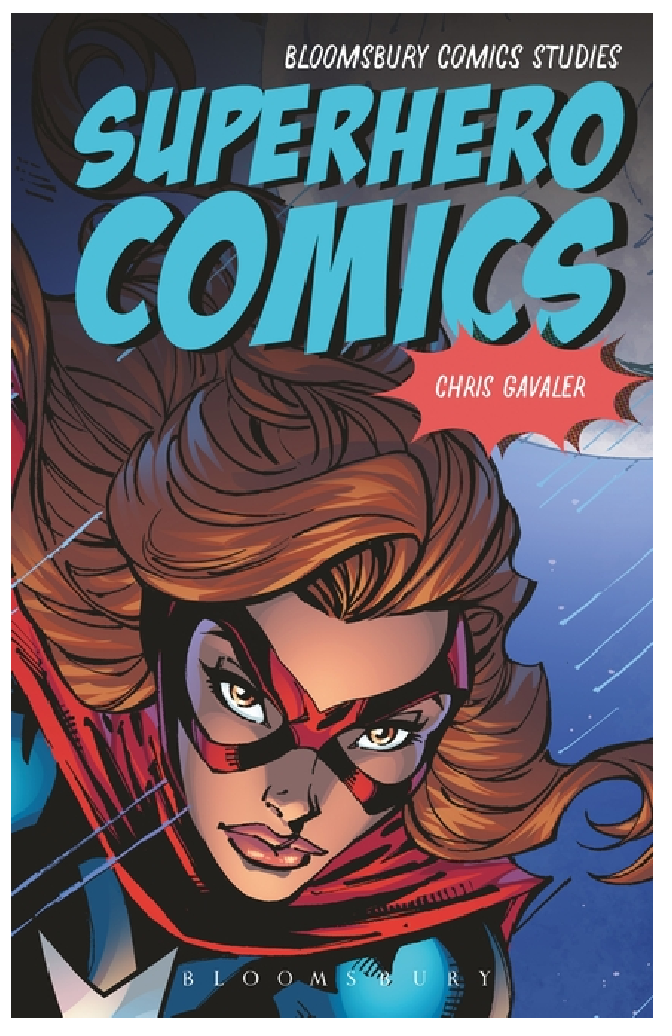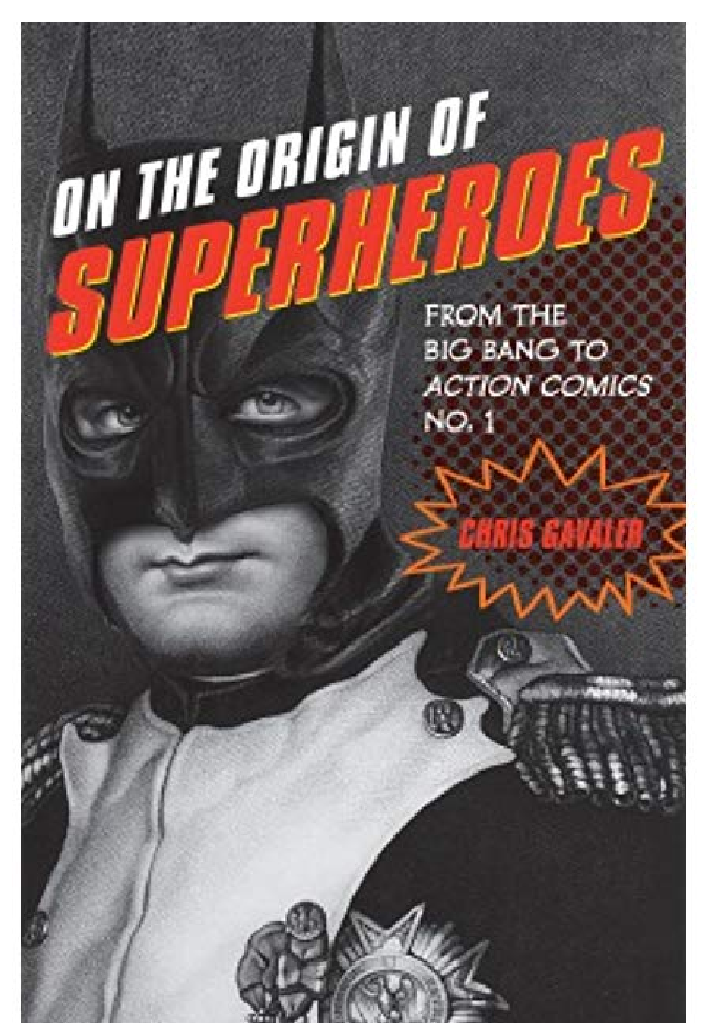Category Archives: Uncategorized
September 21, 2020 End Gerrymandering Now: Vote YES on Amendment 1
I made this bumper sticker back in January 2017. I just added “Vote YES on Amendment 1” because that is THE BEST WAY to stop gerrymandering in Virginia.
There is a lot of misinformation about the amendment and the notion that some other amendment could replace it. That’s a manipulative distraction. Because it all comes down to this:
If you want the Democrats in Richmond to be free to gerrymander when they draw the new maps in 2021, then vote NO.
But if you believe gerrymandering is wrong regardless of which party is in power, then vote YES.
Here’s why:
ONLY an amendment can stop a 2021 gerrymander.
The anti-gerrymandering law that was passed in 2020 is MEANINGLESS. The legislature can do ANYTHING they like with the new maps because the Virginia constitution gives them complete, unfettered power. No law can change that.
And this has to happen NOW. New maps MUST BE DRAWN next year. There’s no stopping that. It can’t be paused for two legislative sessions and a general election as some other theoretical new amendment is approved.
And I mean literally RIGHT NOW. Voting has started. There’s no pause button for that either.
I’m hearing a lot distracting noise about the amendment not being perfect. Obviously it’s not perfect. But it is VERY GOOD.
It guarantees that the two parties will be forced to work together and draw maps that favor neither side. That is the ONLY REASON a redistricting commission exists, and the amendment achieves that goal.
I keep hearing distractions about the commission not being “independent.” What does that even mean? The point is to lock the two parties into a forced position where compromise is their only option. The amendment does exactly that.
I hear distractions about the commission having too many “elected officials” or that the parties are in too much control of who serves on it. THAT IS THE POINT of the commission.
The two parties get 8 members each, and then at least 12 members have to agree on a map. It’s aggressively bipartisan with no option but compromise. THAT is how you end gerrymandering.
But if Amendment 1 fails, we will be left only with the promise of some theoretical replacement amendment that can’t be ratified until after the new maps have been drawn without anything preventing them from being gerrymandered.
It’s either Amendment 1 or crossing your fingers and hoping that the Democrats in Richmond will set aside all partisan and personal interests and draw fair maps when they have complete power to make them as unfair as the GOP maps were against Democrats for the past decade.
The majority party gerrymanders. That’s why it’s so incredibly difficult to stop the perfectly legal but entirely anti-democratic practice. Virginia voters have ONCE CHANCE to do this, and it’s RIGHT NOW.
If you believe in fairness and principles, vote YES.
If you believe in revenge and hypocrisy, then vote NO.
Or maybe you actually think the Richmond Democrats are above gerrymandering? That our side are the “good guys,” and it’s only those “bad guy” Republicans who would ever do something so terrible as gerrymandering?
Grow up.
I’m not going to gamble away this amendment on a roll of the dice and the blind hope that incumbents will all suddenly become superhuman angels overnight. We’re talking about politicians.
Power corrupts. Gerrymandering has proven that again and again and again.
END IT NOW.
Here’s how the amendment looks on the ballot:
Virginia Question 1, the Redistricting Commission Amendment:
A “yes” vote supports transferring the power to draw the state’s congressional and legislative districts from the state legislature to a redistricting commission composed of state legislators and citizens.
A “no” vote opposes transferring the power to draw the state’s congressional and legislative districts to a redistricting commission, thus keeping the state legislature responsible for redistricting.
And here’s the complete text of the amendment (I’ve placed what I consider key points in red for easy skimming):
Section 6. Apportionment.
Members of the House of Representatives of the United States and members of the Senate and of the House of Delegates of the General Assembly shall be elected from electoral districts established by the General Assembly pursuant to Section 6-A of this Constitution. Every electoral district shall be composed of contiguous and compact territory and shall be so constituted as to give, as nearly as is practicable, representation in proportion to the population of the district. Every electoral district shall be drawn in accordance with the requirements of federal and state laws that address racial and ethnic fairness, including the Equal Protection Clause of the Fourteenth Amendment to the Constitution of the United States and provisions of the Voting Rights Act of 1965, as amended, and judicial decisions interpreting such laws. Districts shall provide, where practicable, opportunities for racial and ethnic communities to elect candidates of their choice.
The General Assembly shall reapportion the Commonwealth shall be reapportioned into electoral districts in accordance with this section and Section 6-A in the year 2011 2021 and every ten years thereafter.
Any such decennial reapportionment law shall take effect immediately and not be subject to the limitations contained in Article IV, Section 13, of this Constitution.
The districts delineated in the decennial reapportionment law shall be implemented for the November general election for the United States House of Representatives, Senate, or House of Delegates, respectively, that is held immediately prior to the expiration of the term being served in the year that the reapportionment law is required to be enacted. A member in office at the time that a decennial redistricting law is enacted shall complete his term of office and shall continue to represent the district from which he was elected for the duration of such term of office so long as he does not move his residence from the district from which he was elected. Any vacancy occurring during such term shall be filled from the same district that elected the member whose vacancy is being filled.
Section 6-A. Virginia Redistricting Commission.
(a) In the year 2020 and every ten years thereafter, the Virginia Redistricting Commission (the Commission) shall be convened for the purpose of establishing districts for the United States House of Representatives and for the Senate and the House of Delegates of the General Assembly pursuant to Article II, Section 6 of this Constitution.
(b) The Commission shall consist of sixteen commissioners who shall be selected in accordance with the provisions of this subsection.
(1) Eight commissioners shall be legislative members, four of whom shall be members of the Senate of Virginia and four of whom shall be members of the House of Delegates. These commissioners shall be appointed no later than December 1 of the year ending in zero and shall continue to serve until their successors are appointed.
(A) Two commissioners shall represent the political party having the highest number of members in the Senate of Virginia and shall be appointed by the President pro tempore of the Senate of Virginia.
(B) Two commissioners shall represent the political party having the next highest number of members in the Senate of Virginia and shall be appointed by the leader of that political party.
(C) Two commissioners shall represent the political party having the highest number of members in the House of Delegates and shall be appointed by the Speaker of the House of Delegates.
(D) Two commissioners shall represent the political party having the next highest number of members in the House of Delegates and shall be appointed by the leader of that political party.
(2) Eight commissioners shall be citizen members who shall be selected in accordance with the provisions of this subdivision and in the manner determined by the General Assembly by general law.
(A) There shall be a Redistricting Commission Selection Committee (the Committee) consisting of five retired judges of the circuit courts of Virginia. By November 15 of the year ending in zero, the Chief Justice of the Supreme Court of Virginia shall certify to the Speaker of the House of Delegates, the leader in the House of Delegates of the political party having the next highest number of members in the House of Delegates, the President pro tempore of the Senate of Virginia, and the leader in the Senate of Virginia of the political party having the next highest number of members in the Senate a list of retired judges of the circuit courts of Virginia who are willing to serve on the Committee, and these members shall each select a judge from the list. The four judges selected to serve on the Committee shall select, by a majority vote, a judge from the list prescribed herein to serve as the fifth member of the Committee and to serve as the chairman of the Committee.
(B) By January 1 of the year ending in one, the Speaker of the House of Delegates, the leader in the House of Delegates of the political party having the next highest number of members in the House of Delegates, the President pro tempore of the Senate of Virginia, and the leader in the Senate of the political party having the next highest number of members in the Senate shall each submit to the Committee a list of at least sixteen citizen candidates for service on the Commission. Such citizen candidates shall meet the criteria established by the General Assembly by general law.
The Committee shall select, by a majority vote, two citizen members from each list submitted. No member or employee of the Congress of the United States or of the General Assembly shall be eligible to serve as a citizen member.
(c) By February 1 of the year ending in one, the Commission shall hold a public meeting at which it shall select a chairman from its membership. The chairman shall be a citizen member and shall be responsible for coordinating the work of the Commission.
(d) The Commission shall submit to the General Assembly plans for districts for the Senate and the House of Delegates of the General Assembly no later than 45 days following the receipt of census data and shall submit to the General Assembly plans for districts for the United States House of Representatives no later than 60 days following the receipt of census data or by the first day of July of that year, whichever occurs later.
(1) To be submitted as a proposed plan for districts for members of the United States House of Representatives, a plan shall receive affirmative votes of at least six of the eight legislative members and six of the eight citizen members.
(2) To be submitted as a proposed plan for districts for members of the Senate, a plan shall receive affirmative votes of at least six of the eight legislative members, including at least three of the four legislative members who are members of the Senate, and at least six of the eight citizen members.
(3) To be submitted as a proposed plan for districts for members of the House of Delegates, a plan shall receive affirmative votes of at least six of the eight legislative members, including at least three of the four legislative members who are members of the House of Delegates, and at least six of the eight citizen members.
(e) Plans for districts for the Senate and the House of Delegates shall be embodied in and voted on as a single bill. The vote on any bill embodying a plan for districts shall be taken in accordance with the provisions of Article IV, Section 11 of this Constitution, except that no amendments shall be permitted. Such bills shall not be subject to the provisions contained in Article V, Section 6 of this Constitution.
(f) Within fifteen days of receipt of a plan for districts, the General Assembly shall take a vote on the bill embodying that plan in accordance with the provisions of subsection (e). If the General Assembly fails to adopt such bill by this deadline, the Commission shall submit a new plan for districts to the General Assembly within fourteen days of the General Assembly’s failure to adopt the bill. The General Assembly shall take a vote on the bill embodying such plan within seven days of receipt of the plan. If the General Assembly fails to adopt such bill by this deadline, the districts shall be established by the Supreme Court of Virginia.
(g) If the Commission fails to submit a plan for districts by the deadline set forth in subsection (d), the Commission shall have fourteen days following its initial failure to submit a plan to the General Assembly. If the Commission fails to submit a plan for districts to the General Assembly by this deadline, the districts shall be established by the Supreme Court of Virginia.
If the Commission submits a plan for districts within fourteen days following its initial failure to submit a plan, the General Assembly shall take a vote on the bill embodying such plan within seven days of its receipt. If the General Assembly fails to adopt such bill by this deadline, the districts shall be established by the Supreme Court of Virginia.
(h) All meetings of the Commission shall be open to the public. Prior to proposing any redistricting plans and prior to voting on redistricting plans, the Commission shall hold at least three public hearings in different parts of the Commonwealth to receive and consider comments from the public.
(i) All records and documents of the Commission, or any individual or group performing delegated functions of or advising the Commission, related to the Commission’s work, including internal communications and communications from outside parties, shall be considered public information.[6]
- 1 comment
- Posted under Uncategorized
September 14, 2020 My New Digital Paper Dolls
Someday I should really tackle Photoshop, or at least Adobe Illustrator. But I keep having too much fun inventing styles and techniques within the archaic simplicity of MS Paint.
- Leave a comment
- Posted under Uncategorized
September 7, 2020 Eldercare Twilight Zone

“I am Yukie Sakai, home help aide! And I’m here to help!!”
If that sounds like the tagline of a delightfully improbable superheroine, the crises that call her to action are even better: a legion of brutal grandchildren hunting their destitute grandfather down for New Year’s change; a senile Santa Claus giving gangsters rocket-launchers for Christmas; an elderly woman whose supernatural dementia rewrites history to match her delusions.
This is the eldercare Twilight Zone of manga artist Shintaro Kago’s Dementia 21, now extended into its second volume for English readers. The first included an interview with the artist, as well as opening stories that provide some grounding (Yukie keeps getting these demented assignments because a jealous colleague is blackmailing an executive to destroy her), but since each episode stands alone, Volume Two does too.
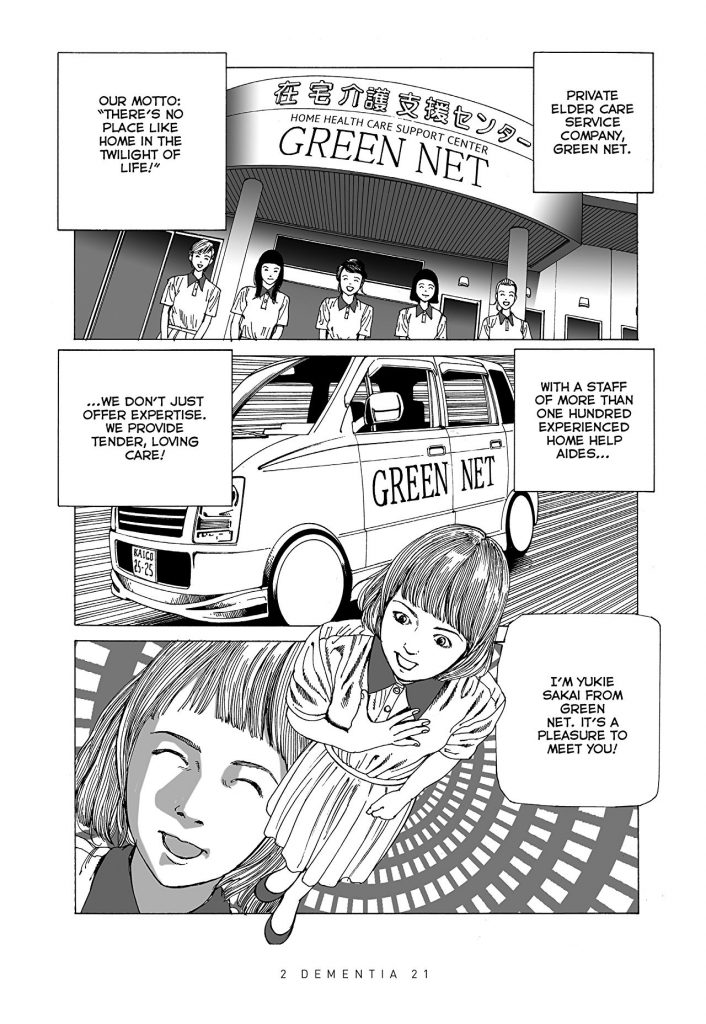
As much as I admire Kago’s oddness as a writer, his artistic pen is even sharper. Unlike so many typical manga characters, Kago’s cast avoids the cliché stylistic ticks of their genre and instead hover at the edge of naturalism. Though selectively cartoonish, even when simplified, Yukie and her clients retain a realistic edge that intensifies their horror-tinged universe. Kago wisely keeps his computer-generated graphics in the background, evoking the emotion of a moment through soft grays that swirl psychedelically or emanate in dramatic bursts. Best of all, the introductory page of each chapter—presumably covers or splash-pages for the original series—are surrealist mini-masterpieces.

Though you might expect Yukie to defeat each episode’s menace, you can’t count on her. She reassured poor Mrs. Furuike that the zombies employed at the nursing home were no threat, but that didn’t stop the nursing home from attaching her head to machines and feeding the rest of her body to the new staff. When a neighborhood of condos designed to look like bingo boards plays an elaborate game of chance by darkening a square of windows whenever an elderly tenant dies, Yukie doesn’t even try to stop them. She’s equally powerless when Japan’s government passes a law nullifying all crimes committed by senior citizens to reduce over-crowded prisons—never mind that the elderly, deprived of the comforts of prison, “descended into more profound depths of evil.”
The English translation by Rachel Thorn provides an appropriately colloquial tone to the dialogue, including idioms (“All right, all right. I get the message. I’ll leave!”) and slang abbreviations (“Whadda we gonna, do, boss?”). The chapter set 10,000 years in the future must have been a particular challenge since the humor is primarily word-based with a chief archaeologist (a descendant and namesake of Yukie) lecturing about the discovery of an ancient species called the “Ell-durly” who battled ancient homo sapiens with repellent “Bah-breff” and detachable teeth. Adages are harder, requiring an asterisk and footnote to explain why the archaeologist thinks eggplants were poisonous (they were once thought to inhibit fertility and so lead to the saying: “Don’t let your daughter eat autumn eggplants”).
The core premise of the series requires some cultural context too. Presumably a Japanese reader would know before the sixteenth chapter of the second volume that Japan has one of the highest elderly populations in the world: “I’m sure you’re aware that Japan’s population pyramid has become wildly distorted” with “increasingly more older people than younger people.” A heroine who works for a home aid corporation reflects that demographic fact and places all of the adventures in the realm of social commentary.
Unfortunately, no amount of cultural context can lessen Kago’s attitude toward rape. Yukie’s naked spirit is chased by the equally naked spirit of the inventor of a machine that forces out-of-body experiences: “Hi-de-ho! I may be old, but my disembodied spirit is as lively as ever.” Worse, according to the archaeologist’s theories, the male Ell-Durley “would attack a female homo sapiens … impregnate her … and keep her captive … while the fetus develops.” Worst off all, that demented Santa Claus rapes a child’s mother to fulfill the child’s wish for a baby brother. Dark or not, the humor does not translate.
Still, Kago is significantly less sexually exploitative than the manga market he later lampoons. he collection dips fully into meta-fiction as Kago draws himself redrawing the series to satisfy the requirements of an anime producer. The changes replace Kago’s style with generic manga effects: Yukie’s “rounder face,” “bigger eyes,” “more exaggerated expressions!” That new version also includes “longer legs,” “shorter skirt,” and “big boobs.” Instead of old people, she’s caring for young girls with sponge baths and glimpses of panties.
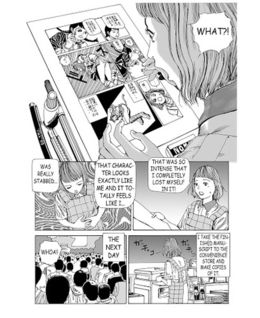
Like most of the tales, the meta-Kago’s ends tragically, but this time the collection transitions into a four-part sequence that appears to bring the series to an end—not that any of Kago’s endings seem definitive. After Yukie tricks death by giving herself a 10,000-year lifespan, even the future archaeologist remarks on internal inconsistencies: “Wait, I thought I was supposed to be your descendant in this book.”
Other tales appear to exist in parallel realities. According to chapter three, Yukie and the rest of the cast are just actors in an elaborate stage production. Chapter six depicts a global war against a legion of supernaturally sentient diapers, until the entire planet is swaddled in one enormous diaper which the human resistance causes to explode in confusion by intentionally urinating in their clothes. If that planet-wide cataclysm leaves any historical impression, it’s erased before the start of the next chapter, which itself ends with a child about to launch a world-ending nuclear missile strike.
The ending sequence brings a welcome arc to the series, initiating yet another war, this one between the elderly and the Japanese government attempting to exterminate them once and for all. Though I appreciate the extended storyline, it comes with the cost of Yukie, or at least her character consistency since the ever-kind aide transforms into a mercenary providing her talents and inside knowledge for a wad of cash. The instant conversion is a cute gag, in keeping with Kago’s increasing meta-approach, but I preferred the old Yukie. Granted, she was first rendered destitute by the agency that recruits her, transforming her first into a vengeful monster kidnapping her former clients to discover who framed her and got her fired from her beloved job.
But maybe that’s all an alternative timeline too, and the more lovable Yukie will return for a third volume?
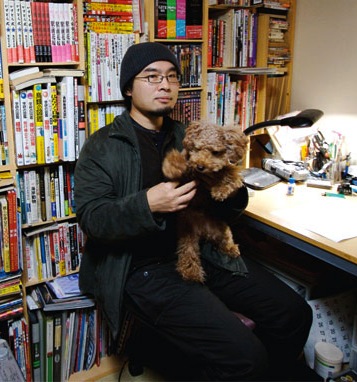
Tags: Dementia 21, Kago, Vol. 2
- Leave a comment
- Posted under Uncategorized
August 31, 2020 Predicting the Next President
First a reminder: the 2016 polls predicted Clinton would beat Trump by 3%. She instead beat him by only 2%–in the popular vote, which was all anyone cared about back then. Now we know better. It’s the Electoral College, stupid.
That’s good news for Trump, because his chances of winning the popular vote are essentially zero. He’s the first president in polling history never to have a positive approval rating. He’s hovered around 42% for most of his term.
But that’s where Trump’s good news stops.
Of the twelve presidential election forecasters, nine predict Biden will win the Electoral College. None predict Trump. Three are undecided but heavily favor Biden. None favor Trump. Trump’s electoral count ranges from 164 to 204. Biden’s ranges from 268 to 325. You need 270 to win. Here’s the list, starting with best for Biden and ending with best for Trump:
Princeton:
325 Biden, 187 Trump
JHK:
319 Biden, 163 Trump
Inside Elections:
319 Biden, 187 Trump
Niskanen:
318 Biden, 125 Trump
The Economist:
308 Biden, 164 Trump
Cook Political Report:
308 Biden, 187 Trump
FiveThirtyEight:
307 Biden, 185 Trump
NPR:
297 Biden, 170 Trump
U.S. News:
278 Biden, 186 Trump
CNN:
268 Biden, 170 Trump
Politico:
268 Biden, 203 Trump
Crystal Ball:
268 Biden, 204 Trump
Trump is at best 66 votes short, and Biden is at worst two short. All twelve forecasts place some states in the toss-up range, leaving their electors unknown. The number of toss-ups in each forecast ranges from two to six, with a total of nine different states. Here’s the list, from most to least commonly identified as toss-ups:
North Carolina 12, Arizona 8, Georgia 7, Ohio 7, Florida 4, Wisconsin 4, Iowa 3, Texas 1, Minnesota 1.
North Carolina is unanimously in play, and it’s probably equally safe to ignore outliers Texas and Minnesota, leaving a total of seven serious toss-ups. (Though if you define a toss-up as any state where neither candidate is currently leading by more than five points, you would instead have to leave in Texas and Minnesota, add Nevada and Arkansas, and strike Florida.)
This is not unlike last November when, according to the four earliest predictions, there were eight possible toss-ups: Arizona, Wisconsin, Florida, Pennsylvania, North Carolina, Michigan, New Hampshire, and Iowa. But note which two states are no longer in any of the forecasts’ toss-up categories:
Pennsylvania and Michigan.
Those were two of Trump’s key victories in 2016. Since Trump and Clinton were polling within the margin error, both states were toss-ups then. Now neither are. All twelve forecasts predict Biden will win both.
Worse for Trump, over half of the current forecasts have Ohio and Georgia in play, two states Trump won easily in 2016. Still worse, for Trump to win in 2020 he has to sweep all seven toss-ups. Biden has to win any one of them, giving him seven different paths to victory.
But of the seven, one stands out:
Wisconsin.
It was the one actual upset in 2016. Clinton was polling just above the margin of error. Instead, Trump took 1,405,284 votes to Clinton’s 1,382,536. That’s a difference of 22,748 from just under 2.8 million total.
And Wisconsin looks just as key in 2020. The three forecasts that place Biden at 268 electors identify Wisconsin as a toss-up. Eight of the nine forecasts that place Biden over 270 predict he will win Wisconsin. There’s only one exception. NPR identifies Wisconsin as a toss-up, but they also predict Biden will win Florida, still putting him over the top. Seven other forecasts give Florida to Biden too, as do the current polls. None give Florida to Trump.
What does this all mean for November? Nothing. These are just predictions. And given the unknowns of voting during the pandemic, predictions may be significantly less predictive this year. Fortunately, Virginians have some excellent voting options:
1) you can wait till November 3rd and cast your vote as you’ve probably always done,
2) you can order an absentee ballot and vote by mail, or
3) starting 45 days before election day on September 18th, you can vote in-person at your town hall or municipal building during regular business hours, plus some Saturdays.
So if you want to prove the predictions right, go vote. If you want to prove the predictions wrong, go vote too. That’s one thing all Americans can agree on: it’s the vote that matters.
- 2 comments
- Posted under Uncategorized
August 29, 2020 The FINAL Zombie Monologue: “Zombie Klansman”
I didn’t think we’d stage this monologue. I wrote it years ago, even before the Charlottesville Unite the Right Rally, but it resonates more horrifically this summer of BLM protests and tumbling Confederacy monuments. When it came time to convert my play The Zombie Life into an online preview of excerpts, I didn’t think any of the actors would want to perform “Zombie Klansman.” I was wrong. They were all willing, voting it to the top of their must-perform list. The producer was understandably hesitant. Firehouse Theatre is only two blocks from the Lee statue on Richmond’s Monument Avenue. But then the director (who not coincidentally is my sister) proposed an interactive staging that pushed the limits of Zoom, and now, after the addition of a trigger warning, it is the finale of The Zombie Monologues.
All six performances are here.
THERAPIST:
While observing my former patients, the ones who have volunteered to embrace the emotional peace of the zombie life, I’ve discovered that certain objects, certain physical possessions seem to carry a kind of psychological charge in them, a residue of memory, of identity. They’re haunted. Of course anything that forces a former convert to re-experience emotional pain is a dangerous object. But some dangerous objects are more dangerous than others.
For this week’s final experiment, our final testimony before bringing the Zombie Life seminar to you live next year in the Firehouse theatre, I would like everyone to witness the transformative horror of a dangerously haunted object—and so help you recognize the need to relinquish all human connections that bring only pain and suffering to our lives. Thank you.
ZOMBIES:
I hated black people. Like my daddy did. It’s a heritage thing. If they’re so pissed about being slaves why not ship back home to Africa already? Take the Indians with you. Both kinds. And the Mexicans, obviously. Asians. I could stomach. They got a work ethic. Especially in bed. Even if they smelled funny. Worse now. We all do. It’s the rot. It’s hard picking any of them out of a crowd anymore. It’s like I’m going color blind. Everything is gray. Everybody. A sort of greenish gray, with darker, flaky bits where it’s really bad. You’d be surprised how fast skin spoils. Pretty soon we’re all one color. One race. It’s like pinko heaven around here. We all rot at the same rate. Three words: e-fucking-quality. What the negro lovers were trying to breed us down to. This got the job down a hell of a lot faster. Not that I’m complaining. No more illegals stealing the jobs. No government hand-outs bleeding my paycheck. No more mongrel babies. No half-bloods. Or blue bloods either. It all drains out. Blood is blood. Every drop of it. Hard figuring what we got so rabid about. So bloodthirsty. Life will do that to you. Make everything look so black and white. Gray is better. Skin is skin. I don’t hate you. I just need you dead. I just need everybody dead.
the ZOMBIE monologues
by Chris Gavaler
directed by Joan Gavaler
August 19-30, 2020
the ZOMBIE monologues is a fully virtual prequel to our world premiere of Chris Gavaler’s THE ZOMBIE LIFE that we’ve had to postpone due to COVID-19.
Videos will premiere at 4pm on 8/19, 8/21, 8/23, 8/25, 8/27, and 8/29 at these 3 links
https://www.facebook.com/FirehouseTheatre/
https://tinyurl.com/zombiemono
https://www.firehousetheatre.org/
Wed 8/19, Thu 8/20
Ken Moretti – Therapist + Keaton Hillman – Doctor
Fri 8/21, Sat 8/22
Marjie Southerland – Chef
Sun 8/23, Mon 8/24
Robbie Winston – Professional
Tue 8/25, Wed 8/26
Boomie Pedersen – Activist
Thu 8/27, Fri 8/28
Caity Brown – Volunteer
Sat 8/29, Sun 8/30
Ken Moretti, Keaton Hillman, Marjie Southerland,
Robbie Winston, Boomie Pedersen, Caity Brown – klansman
the ZOMBIE monologues has been developed by Firehouse Theatre with support from Aura CuriAtlas Physical Theatre through a series of Zoom workshops.
Videos will premiere at 4pm on 8/19, 8/21, 8/23, 8/25, 8/27, and 8/29 at these 3 links
https://www.facebook.com/FirehouseTheatre/
https://tinyurl.com/zombiemono
https://www.firehousetheatre.org/
donations gladly accepted at https://tinyurl.com/zommon or text “zombie” to 44321.
The Zombie Life: A Seminar for Humans Seeking Conversion
We know life is hard. When you are ready to stop searching for meaning and leave the pain behind, we are ready to help.
1. Zombies have no responsibilities.
2. Zombies feel no guilt, shame, or emotional pain of any kind.
3. Zombies don’t plan for the future.
4. Zombies are never judgmental, petty, jealous, or hypocritical.
5. Zombies are free of racism, sexism, and all other forms of prejudice and bigotry.
6. Zombies form no governments, run no businesses, consume no natural resources, and cause no harm to their environments.
7. Zombies are never uncertain. They never second guess. They have no regrets.
Performers:
Caity Brown
Keaton Hillman
Ken Moretti
Boomie Pedersen
Marjie Southerland
Robbie Winston
Production Team:
Joan Gavaler – Director
Dan Plehal – Movement Director
Todd Labelle – Production Designer
Tad Burrell – Set Designer
Annette Hairfield – Costume Designer
AC Wilson – Props Designer
Grace Brown – Stage Manager
- Leave a comment
- Posted under Uncategorized
August 27, 2020 The Zombie Monologues: “Zombie Volunteer”
Who would ever choose to become a zombie?
According to The Zombie Life, lots of people. It’s the premise of the play, and today’s “Zombie Volunteer” is the penultimate performance of the two-week premiere of the online Zombie Monologues, excerpts of the full-production we expect to stage next August at Richmond’s Firehouse Theatre when that other apocalyptic pandemic is over.
The link to all of the monologues is HERE. And stay tuned for the final performance, “Zombie Klansman,” Saturday at 4:00.
I admit it. Being dead is a hell of a lot simpler. Life. It was just too much. It was lonely. It hurt. There’s only so much Zoloft you can choke down. And the whole time you’re looking over your shoulder, flinching, bracing for it. You spend your whole life knowing exactly how the story ends. You die. Me. The only window into the universe, time, reality, everything, the center of the world. I just somehow magically “stop”? How can we be expected to understand something like that? We pretend it makes sense, but it doesn’t. We distract ourselves so we don’t have to keep thinking about it every unrelenting second. Get jobs, have sex, watch TV. And sometime in there somewhere maybe we fall in love. Which is great. Best distraction of all. It makes it all bearable. The waiting. For the inevitable. But it’s a trap. Because while you’re making life so nice and wonderful, while you’re making your life actually mean something, giving reason to the unreasonable, you’re only making death that much worse. Infinitely worse. Because that person you love, your husband, wife, mother, father, child, sister, brother, friend—they die too. Permanently. It’s not just you who “stops” now. That person you’ve hidden a part of yourself inside. That person you would kill for. Die for. They just disappear too? Everything between you, all that love. Gone. Forever. It’s monstrous. It’s monstrous. Who could live in a universe like that? I don’t want anything to do with it. I’d rather be dead. I just want to be dead. I want everybody to stop trying to love me and just be dead already.
the ZOMBIE monologues
by Chris Gavaler
directed by Joan Gavaler
August 19-30, 2020
the ZOMBIE monologues is a fully virtual prequel to our world premiere of Chris Gavaler’s THE ZOMBIE LIFE that we’ve had to postpone due to COVID-19.
Videos will premiere at 4pm on 8/19, 8/21, 8/23, 8/25, 8/27, and 8/29 at these 3 links
https://www.facebook.com/FirehouseTheatre/
https://tinyurl.com/zombiemono
https://www.firehousetheatre.org/
Wed 8/19, Thu 8/20
Ken Moretti – Therapist + Keaton Hillman – Doctor
Fri 8/21, Sat 8/22
Marjie Southerland – Chef
Sun 8/23, Mon 8/24
Robbie Winston – Professional
Tue 8/25, Wed 8/26
Boomie Pedersen – Activist
Thu 8/27, Fri 8/28
Caity Brown – Volunteer
Sat 8/29, Sun 8/30
Ken Moretti, Keaton Hillman, Marjie Southerland,
Robbie Winston, Boomie Pedersen, Caity Brown – klansman
the ZOMBIE monologues has been developed by Firehouse Theatre with support from Aura CuriAtlas Physical Theatre through a series of Zoom workshops.
Videos will premiere at 4pm on 8/19, 8/21, 8/23, 8/25, 8/27, and 8/29 at these 3 links
https://www.facebook.com/FirehouseTheatre/
https://tinyurl.com/zombiemono
https://www.firehousetheatre.org/
donations gladly accepted at https://tinyurl.com/zommon or text “zombie” to 44321.
The Zombie Life: A Seminar for Humans Seeking Conversion
We know life is hard. When you are ready to stop searching for meaning and leave the pain behind, we are ready to help.
1. Zombies have no responsibilities.
2. Zombies feel no guilt, shame, or emotional pain of any kind.
3. Zombies don’t plan for the future.
4. Zombies are never judgmental, petty, jealous, or hypocritical.
5. Zombies are free of racism, sexism, and all other forms of prejudice and bigotry.
6. Zombies form no governments, run no businesses, consume no natural resources, and cause no harm to their environments.
7. Zombies are never uncertain. They never second guess. They have no regrets.
Performers:
Caity Brown
Keaton Hillman
Ken Moretti
Boomie Pedersen
Marjie Southerland
Robbie Winston
Production Team:
Joan Gavaler – Director
Dan Plehal – Movement Director
Todd Labelle – Production Designer
Tad Burrell – Set Designer
Annette Hairfield – Costume Designer
AC Wilson – Props Designer
Grace Brown – Stage Manager
- Leave a comment
- Posted under Uncategorized
August 25, 2020 The Zombie Monologues: “Zombie Activist”
Today is DAY FOUR of six for the online premiere of The Zombie Monologues. The “Zombie Activist” was a section I added to the full play The Zombie Life last year, and so long before this summer of BLM protests. It’s more than a little strange seeing it performed now in our current context. When it was time to cull the play down to a few monologues, I wasn’t certain I wanted to include this one, but the cast voted for it. So here it is.
The link to all of the monologues is here.
The final two sections, “Zombie Volunteer” and “Zombie Klansman” will premiere on Thursday and Saturday at 4:00.
There are only two kinds of people. I used to think it was men and women. The oppressive patriarchy and all that. It’s not race either, blacks and whites. I mean it is all about that, who is born with what, how much money, what color penis. Trust funds and tax shelters and it’s not my fault what your parents did or didn’t hand down to you, a work ethic, an entrepreneurial spirit. Almost anyone can make it if they really try probably, claw your way out of the melting pot, step on the heads of your opportunity-blind brothers and sisters. Food and not food. That’s all we are. Eaters and the eaten. I always felt bad about that. Social justice. I went to protests, chanted at rallies, marched and waved banners for my fellow whatevers. We are all one. Though I don’t actually live around here. My train ticket was first class. And we went to a nice restaurant afterwards, ethnic, because, you know, as long as I’m here, why shouldn’t I treat myself? Didn’t I earn it? Sure, maybe I started out with a leg up, but nothing is guaranteed. I work hard. I’m a good person. I’m not saying money is a virtue, but I’m not saying it’s not either. I’m better than lots of people, rich people. Actual rich people. The selfish ones. The greedy. I’m not greedy. I just have good taste. Everybody has to eat. Why shouldn’t it be something good? Why shouldn’t it be you?
the ZOMBIE monologues
by Chris Gavaler
directed by Joan Gavaler
August 19-30, 2020
the ZOMBIE monologues is a fully virtual prequel to our world premiere of Chris Gavaler’s THE ZOMBIE LIFE that we’ve had to postpone due to COVID-19.
Videos will premiere at 4pm on 8/19, 8/21, 8/23, 8/25, 8/27, and 8/29 at these 3 links
https://www.facebook.com/FirehouseTheatre/
https://tinyurl.com/zombiemono
https://www.firehousetheatre.org/
Wed 8/19, Thu 8/20
Ken Moretti – Therapist + Keaton Hillman – Doctor
Fri 8/21, Sat 8/22
Marjie Southerland – Chef
Sun 8/23, Mon 8/24
Robbie Winston – Professional
Tue 8/25, Wed 8/26
Boomie Pedersen – Activist
Thu 8/27, Fri 8/28
Caity Brown – Volunteer
Sat 8/29, Sun 8/30
Ken Moretti, Keaton Hillman, Marjie Southerland,
Robbie Winston, Boomie Pedersen, Caity Brown – klansman
the ZOMBIE monologues has been developed by Firehouse Theatre with support from Aura CuriAtlas Physical Theatre through a series of Zoom workshops.
Videos will premiere at 4pm on 8/19, 8/21, 8/23, 8/25, 8/27, and 8/29 at these 3 links
https://www.facebook.com/FirehouseTheatre/
https://tinyurl.com/zombiemono
https://www.firehousetheatre.org/
donations gladly accepted at https://tinyurl.com/zommon or text “zombie” to 44321.
The Zombie Life: A Seminar for Humans Seeking Conversion
We know life is hard. When you are ready to stop searching for meaning and leave the pain behind, we are ready to help.
1. Zombies have no responsibilities.
2. Zombies feel no guilt, shame, or emotional pain of any kind.
3. Zombies don’t plan for the future.
4. Zombies are never judgmental, petty, jealous, or hypocritical.
5. Zombies are free of racism, sexism, and all other forms of prejudice and bigotry.
6. Zombies form no governments, run no businesses, consume no natural resources, and cause no harm to their environments.
7. Zombies are never uncertain. They never second guess. They have no regrets.
Performers:
Caity Brown
Keaton Hillman
Ken Moretti
Boomie Pedersen
Marjie Southerland
Robbie Winston
Production Team:
Joan Gavaler – Director
Dan Plehal – Movement Director
Todd Labelle – Production Designer
Tad Burrell – Set Designer
Annette Hairfield – Costume Designer
AC Wilson – Props Designer
Grace Brown – Stage Manager
- Leave a comment
- Posted under Uncategorized
August 24, 2020 Should “Cancel Culture” be Cancelled?
My short answer: Yes and no.
Slightly less short: Cancel the term but not the principle.
The much longer version:
The term is a GOP talking-point attack phrase applied to progressives but not to conservatives even when conservatives display the same behavior. Two recent examples:
President Trump has called for multiple product boycotts (Nordstrom, Glenfiddich, HBO, Macy’s, Apple, AT&T, Good Year) without any “cancel culture” complaints, but Rep. Alexandria Ocasio-Cortez’s call to boycott Goya products was attacked as “cancel culture.”
Fox News forced out Tucker Carlson’s head writer Blake Neff after discovering racist and misogynistic statements he recently made under an online pseudonym, and no “cancel culture” accusations followed. But when New York Times editor Bari Weiss resigned the same week, “cancel culture” accusations were literally viral. (The list of people the president has demanded to be fired is even longer.)
But when you remove the extreme partisan imbalance, the principle behind the term is important. As the authors of “A More Specific Letter on Justice and Open Date” wrote in response to “A Letter on Justice and Open Debate” published at Harper’s:
“Some of the problems they bring up are real and concerning.”
I agree. I also agree with (almost all of) the opening paragraph of the Harper’s letter:
“Our cultural institutions are facing a moment of trial. Powerful protests for racial and social justice are leading to overdue demands for police reform, along with wider calls for greater equality and inclusion across our society, not least in higher education, journalism, philanthropy, and the arts. But this needed reckoning has also intensified a new set of moral attitudes and political commitments that tend to weaken our norms of open debate and toleration of differences in favor of ideological conformity. As we applaud the first development, we also raise our voices against the second. The forces of illiberalism are gaining strength throughout the world and have a powerful ally in Donald Trump, who represents a real threat to democracy. But resistance must not be allowed to harden into its own brand of dogma or coercion—which right-wing demagogues are already exploiting. The democratic inclusion we want can be achieved only if we speak out against the intolerant climate that has set in on all sides.”
I appreciate that initial bipartisan focus. But the letter devolves when the authors tick off a lopsided list of vague examples, each demonstrating the sort of reductive and destructive lack of nuance that they claim to oppose.
For a progressive, I spend an atypical amount of time in conversation with conservatives through the Facebook page Rockbridge Civil Discourse I co-founded and co-administer. I read again and again how liberal academics supposedly indoctrinate students and, more recently, promote “cancel culture” on campuses. That’s not what’s happening at my school. When conservative speakers have come to W&L, no one has tried to “cancel” or silence them. I profoundly disagree with Heather MacDonald (I find her denial of campus rape especially vile), but when she spoke against diversity on campus last March, there was no protest against her. Faculty members, specifically those who disagree with her, discouraged it. I’m also a member of a local activist organization, and we discouraged protesting too and instead encouraged attendance at a different event. So, no, liberal professors are not corrupting W&L students with “cancel culture.”
I disagree with the term “cancel culture” when used as a generic sledgehammer, but I also disagree with the assumption that all so-called “cancelling” is inherently wrong. Some is, some isn’t. But even in the cases when cancelling isn’t the right answer, cancelling can still be the right question. “Should x be canceled?” is often useful and vital to ask–in part because it can lead to alternatives that are not “cancelling” (which conservatives object to) but also not leaving a problem unaddressed (which progressives object to). Here’s a specific example:
Should Aristotle be cancelled?
The author, Agnes Callard, says no, and I agree (the article was forwarded by a friend and co-author of two of my recent books, and he strongly agrees too, so conservatives really shouldn’t be panicked that “cancel culture” has taken over academia). Because the question was asked, the author came up with a way of teaching Aristotle that addresses why professors would consider removing him from their courses. Callard writes:
“The Greek philosopher Aristotle did not merely condone slavery, he defended it; he did not merely defend it, but defended it as beneficial to the slave. His view was that some people are, by nature, unable to pursue their own good, and best suited to be “living tools” for use by other people: “The slave is a part of the master, a living but separated part of his bodily frame.” Aristotle’s anti-liberalism does not stop there. He believed that women were incapable of authoritative decision making. And he decreed that manual laborers, despite being neither slaves nor women, were nonetheless prohibited from citizenship or education in his ideal city.”
That’s how the essay begins. Why? Because Callard is trying to convince philosophers not simply to teach Aristotle, but to teach him more effectively. If she began with a defense, those same philosophers would likely read the defense as a denial of problems, making anything else she has to say at best unconvincing.
That’s what’s missing from the conservative half of the equation. Stopping “cancel culture” requires studying each case, identifying the core problem that absolutely must be addressed, and then providing a better solution. If you all you do is reject something on the grounds that it’s “cancel culture,” then you’re ignoring the problem that cancelling is a (possibly flawed) attempt to answer.
Using the one-sledgehammer-fits-all term doesn’t help and likely harms the anti-cancelling cause. In fact, using the term “cancel culture” is itself an example of “cancel culture” because it silences those trying to speak against a problem by dismissing them and their specific concern with a generic label. It’s the opposite of the open debate principle it falsely claims to support.
So, yes, let’s please cancel “cancel culture.”
- Leave a comment
- Posted under Uncategorized
August 23, 2020 The Zombie Monologues: “Zombie Professional”
It’s DAY THREE of the The Zombie Monologues, and time to meet a young urban professional who escaped his meaningless existence.
The Zombie Monologues, a shortened online version of my pandemic-postponed play The Zombie Life, is premiering for the rest of this week at Richmond’s Firehouse Theater’s website, one monologue every other day at 4:00.
The link to all of the monologues is here.
And below is the text and other information about the production.
It’s not like I miss my old life. Nine to five. Tapping keys. I was a robot. Or a, you know. They had me brainwashed. Clawing up the corporate ladder. Chomping at the next promotion. Fighting off all the other ambition-crazed back-stabbers. That’s not living. That’s surviving. Till you can run home at the end of the day, lock yourself behind your protective walls. Then what? The night life? It’s a meat market out there. Hordes descending on bars, stumbling across dance floors, for what? A warm body? “Soul-mates”? We’re talking about packs of mindless animals. All programmed to conform to the illusory ideal of the non-conformist. Express your individuality by purchasing our mass consumer product. The upgrades, phone, car, condo, lover. Well, forget it. I’m not that kind of consumer anymore. I’m off the grid. Unplugged. The individual never existed. We’re a hive species. Accept it. Let go of the grind. The rat race, the human race. This is where we’re meant to be. Right here, right now, nothing else. Totally Zen. I’m like a goddamn guru. Forget meditation, my head’s blank 24/7. This is better than enlightenment. No possessions. No striving. I’m free of everything, ambitions, anxieties, guilt, hope, shame, you name it. You just have to stop running. Turn around and look your fear in the eyes. The sooner you face death, the sooner you’re free.
the ZOMBIE monologues
by Chris Gavaler
directed by Joan Gavaler
August 19-30, 2020
the ZOMBIE monologues is a fully virtual prequel to our world premiere of Chris Gavaler’s THE ZOMBIE LIFE that we’ve had to postpone due to COVID-19.
Videos will premiere at 4pm on 8/19, 8/21, 8/23, 8/25, 8/27, and 8/29 at these 3 links
https://www.facebook.com/FirehouseTheatre/
https://tinyurl.com/zombiemono
https://www.firehousetheatre.org/
Wed 8/19, Thu 8/20
Ken Moretti – Therapist + Keaton Hillman – Doctor
Fri 8/21, Sat 8/22
Marjie Southerland – Chef
Sun 8/23, Mon 8/24
Robbie Winston – Professional
Tue 8/25, Wed 8/26
Boomie Pedersen – Activist
Thu 8/27, Fri 8/28
Caity Brown – Volunteer
Sat 8/29, Sun 8/30
Ken Moretti, Keaton Hillman, Marjie Southerland,
Robbie Winston, Boomie Pedersen, Caity Brown – klansman
the ZOMBIE monologues has been developed by Firehouse Theatre with support from Aura CuriAtlas Physical Theatre through a series of Zoom workshops.
Videos will premiere at 4pm on 8/19, 8/21, 8/23, 8/25, 8/27, and 8/29 at these 3 links
https://www.facebook.com/FirehouseTheatre/
https://tinyurl.com/zombiemono
https://www.firehousetheatre.org/
donations gladly accepted at https://tinyurl.com/zommon or text “zombie” to 44321.
The Zombie Life: A Seminar for Humans Seeking Conversion
We know life is hard. When you are ready to stop searching for meaning and leave the pain behind, we are ready to help.
1. Zombies have no responsibilities.
2. Zombies feel no guilt, shame, or emotional pain of any kind.
3. Zombies don’t plan for the future.
4. Zombies are never judgmental, petty, jealous, or hypocritical.
5. Zombies are free of racism, sexism, and all other forms of prejudice and bigotry.
6. Zombies form no governments, run no businesses, consume no natural resources, and cause no harm to their environments.
7. Zombies are never uncertain. They never second guess. They have no regrets.
Performers:
Caity Brown
Keaton Hillman
Ken Moretti
Boomie Pedersen
Marjie Southerland
Robbie Winston
Production Team:
Joan Gavaler – Director
Dan Plehal – Movement Director
Todd Labelle – Production Designer
Tad Burrell – Set Designer
Annette Hairfield – Costume Designer
AC Wilson – Props Designer
Grace Brown – Stage Manager
- Leave a comment
- Posted under Uncategorized
August 20, 2020 The Zombie Monologues: Zombie Chef
It’s Day Two of The Zombie Monologues cascading premiere, featuring Marjie Southerland in “Zombie Chef.”
The Zombie Monologues, a shortened online version of my pandemic-postponed play The Zombie Life, is going live this week at Richmond’s Firehouse Theater’s website, one monologue each day at 4:00!
The link to the monologues is here.
And below is the text and other information about the production.
Every culture has its dietary restrictions. Cow, pig, shellfish. No beef Fridays. They’re customs, we respect that. But that’s all they are. From a culinary vantage, it’s nonsense. Protein is protein is protein. We taste like pig. Long pig, some tribes call it. I’m not just talking the Donner Party, soccer teams crashing in the Andes. People are nutritional. Ever see Soylent Green? Livestock decimated, not enough crops to feed half the world. They processed what they had. Tastes better than putrid fish. That’s what Norwegians go for. Pour a little sour milk on your morning Mueslix? Now that’s nasty. And don’t get me started on the “It’s raw” thing. Have you never heard of sushi? It doesn’t get any fresher than off the bone. No processing at all. E. coli? Mad cow disease? That’s the corporations killing you. You know how many worms per jar of apple sauce the F.D.A. allows? Pick any rat hairs out of your chicken soup lately? At least I know what I’m eating. I don’t disguise it under pre-wrapped supermarket cellophane. I don’t pay strangers to saw open skulls where I can’t watch. Bleed throats slowly to improve texture. I don’t hobble baby animals in ponds of waste while their feet grow into wire cages. You think I’m a monster? We are what we eat.
the ZOMBIE monologues
by Chris Gavaler
directed by Joan Gavaler
August 19-30, 2020
the ZOMBIE monologues is a fully virtual prequel to our world premiere of Chris Gavaler’s THE ZOMBIE LIFE that we’ve had to postpone due to COVID-19.
Videos will premiere at 4pm on 8/19, 8/21, 8/23, 8/25, 8/27, and 8/29 at these 3 links
https://www.facebook.com/FirehouseTheatre/
https://tinyurl.com/zombiemono
https://www.firehousetheatre.org/
Wed 8/19, Thu 8/20
Ken Moretti – Therapist + Keaton Hillman – Doctor
Fri 8/21, Sat 8/22
Marjie Southerland – Chef
Sun 8/23, Mon 8/24
Robbie Winston – Professional
Tue 8/25, Wed 8/26
Boomie Pedersen – Activist
Thu 8/27, Fri 8/28
Caity Brown – Volunteer
Sat 8/29, Sun 8/30
Ken Moretti, Keaton Hillman, Marjie Southerland,
Robbie Winston, Boomie Pedersen, Caity Brown – klansman
the ZOMBIE monologues has been developed by Firehouse Theatre with support from Aura CuriAtlas Physical Theatre through a series of Zoom workshops.
Videos will premiere at 4pm on 8/19, 8/21, 8/23, 8/25, 8/27, and 8/29 at these 3 links
https://www.facebook.com/FirehouseTheatre/
https://tinyurl.com/zombiemono
https://www.firehousetheatre.org/
donations gladly accepted at https://tinyurl.com/zommon or text “zombie” to 44321.
The Zombie Life: A Seminar for Humans Seeking Conversion
We know life is hard. When you are ready to stop searching for meaning and leave the pain behind, we are ready to help.
1. Zombies have no responsibilities.
2. Zombies feel no guilt, shame, or emotional pain of any kind.
3. Zombies don’t plan for the future.
4. Zombies are never judgmental, petty, jealous, or hypocritical.
5. Zombies are free of racism, sexism, and all other forms of prejudice and bigotry.
6. Zombies form no governments, run no businesses, consume no natural resources, and cause no harm to their environments.
7. Zombies are never uncertain. They never second guess. They have no regrets.
Performers:
Caity Brown
Keaton Hillman
Ken Moretti
Boomie Pedersen
Marjie Southerland
Robbie Winston
Production Team:
Joan Gavaler – Director
Dan Plehal – Movement Director
Todd Labelle – Production Designer
Tad Burrell – Set Designer
Annette Hairfield – Costume Designer
AC Wilson – Props Designer
Grace Brown – Stage Manager
- Leave a comment
- Posted under Uncategorized

